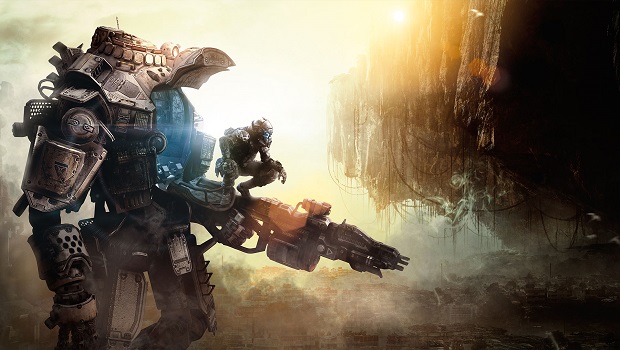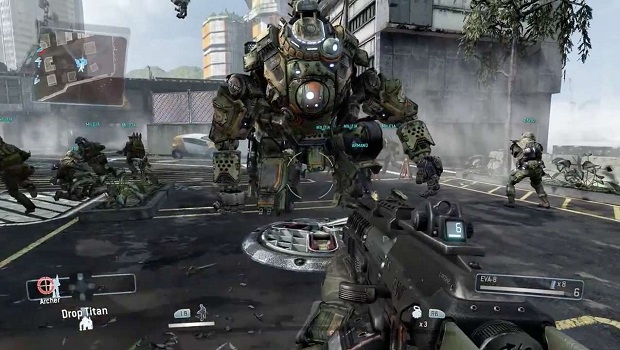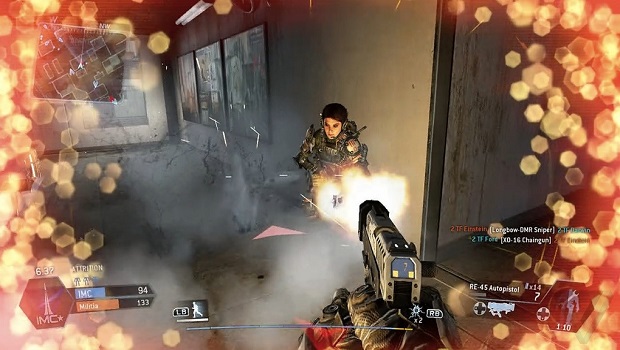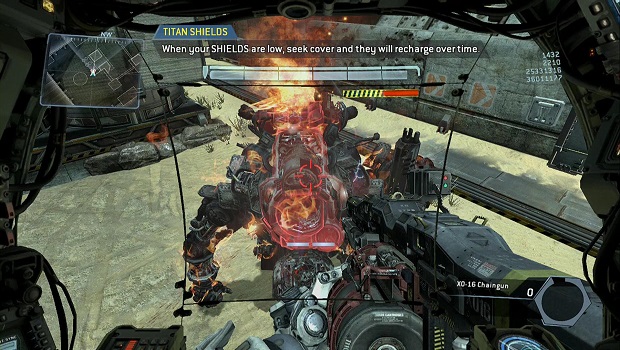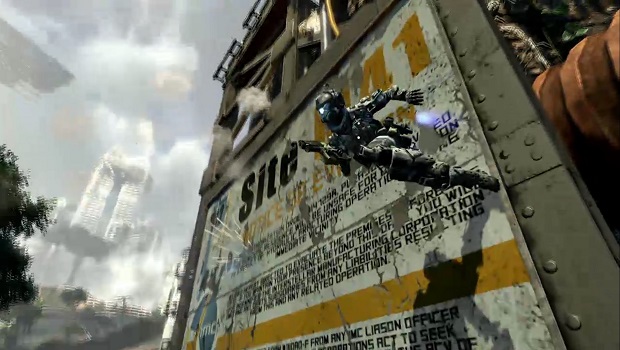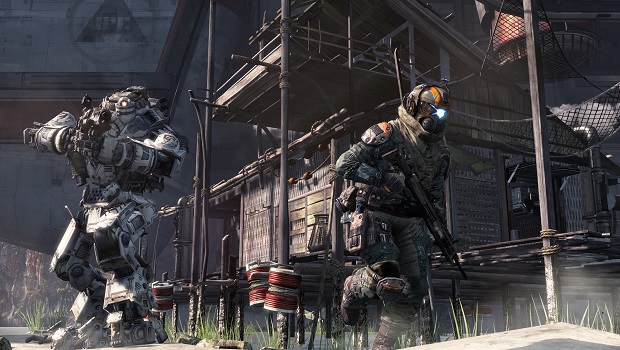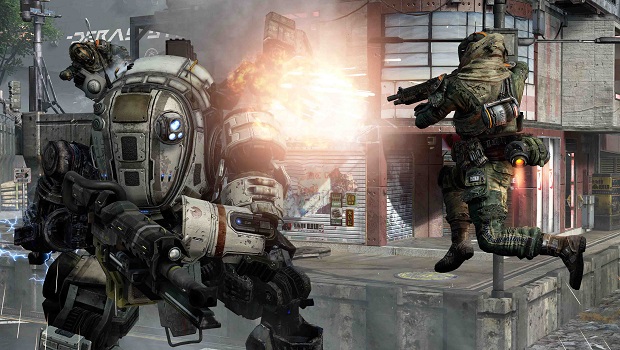I’ve grown bored with AAA shooters. Call of Duty: Ghosts, Battlefield 4 and to a lesser extent Killzone Shadowfall lead the charge onto consoles with what was the antithesis of a victory march. Battlefield 4 was broken for months, Ghosts was the worst Call of Duty game yet released, and Shadowfall trumpets a Metacritic rating of 73 (the worst of the three). And, collectively, all three were beset by the same FPS tropes that have held the genre in check for years now. They failed to differentiate themselves from their predecessors in any meaningful way, and failed to solve issues regarding playability and entertainment which have plagued FPS franchises for years.
The biggest issue I’ve had with shooters is how miserable they are when you’re either not playing well, or on a team that’s being annihilated. You know the situation: when you’re in a Call of Duty match for 2 minutes, and the other team already has every kill streak in the world, so that you can’t breathe at all, instantly dying under a hail of gunfire from helicopters, missile explosions, and max level opponents. Why has no one said, “Gee, since this is a video game, shouldn’t the players always be having fun?
In Titanfall, you never have this soul-crushing experience. The game does a wonderful job of providing entertainment even when you’re being crushed- an achievement of balance which provides a refreshingly entertaining experience. Even losing is fun. In an industry still obsessed with re-capturing the magic from Call of Duty: Modern Warfare, Titanfall elects to take the lessons of all those attempts and build something more impressive than another slightly-prettier military shooter. Respawn avoids the habits of the last few years by focusing on one core detail- making a game that is always fun to play.
The matches, fought between two teams of six pilots no matter the game type, are fast-paced, frantic affairs. Your character is equipped with a jetpack, which while not allowing sustained flight, will boost your ability to jump and wall-run. The maps are designed with verticality in mind, and with a little practice, I found myself scampering over rooftops and rooting through basements with equal ease. This is a game about movement, and the veteran FPS camper will quickly find himself taken down from behind by players traveling at high speed. While this may make the game sound intimidating to newbies (as a Starsiege Tribes veteran, I’ve seen many players give up when confronted by a high-speed, high-skill game), the game adds a number of elements to make it easier for the new player, and give them something to do besides learn the art of respawning.
For starters, everyone gets a Titan. Titans, the hulking war mechs of the game’s universe, are released on a timer. No matter who you are or how badly you are playing, you will get to drop in a couple of Titans during the match. Kills will speed up the timer, so skilled players will get theirs sooner or more frequently. Additionally, new players will be able to rack up kills fighting the numerous AI enemies that are constantly entering the battlefield. Pilots are clearly tougher than their AI counterparts (I’ve only been killed by Spectres twice, and then only because I was fighting an enemy player and landed, wounded, in a group of them) and for a new player, they make wonderful target practice. And in Attrition mode (a ticket based mode similar to what you see in Battlefield 4), taking out AI enemies gives a chance for the weaker player to make a serious contribution to the team effort.
The centerpiece of Titanfall is, of course, the Titan. At the player’s command, your new Titan will drop in from outerspace, crush any enemies it happens to land on, and be prepared for your orders. You can pilot your Titan manually, or set it to AI mode. The Titan AI is pretty competent, and allows you to effectively double your firepower. Still, one on one, pilots can typically take down an AI Titan via rodeo (jumping on and firing point blank into the Titan’s inner workings). Rodeo’ing a Titan is a fantastic feeling of utter-badassness. You get a similar feeling piloting a Titan. Respawn has done a fantastic job differentiating between the feel of the FPS moments and when you’re in the cockpit. The heavy pounding of the metal feet, the breathtaking launch of a payload of missiles, and the swing of a robot fist, pulling the helpless foe from his mech and tossing him away like a used tissue- this is Titanfall.
Titans are customizable to a point. You’ll be able to select from one of three classes (two are only unlocked upon completion of the relevant campaign), the standard Atlus, the speedy Stryder, or the hulking Ogre. Then you can choose your primary and secondary weapons, and a number of special abilities. I myself preferred auto-eject (which will eject you from your Titan as soon as it is in a doomed state) and nuclear ejection (which will cause the ejection to result in a massive explosion)- especially in tandem. Sadly, there are no further customization options- painting my Titan unique color or adding some tic marks for kills would be awesome, and are pretty typical genre tropes. The same lack of customization extends to the pilots. There are plenty of weapons, abilities and attachments, but there’s no way of really leaving a more personal mark on my pilot.
As for the weapons, you begin with a standard set of loadouts, and unlock more weapons and load-outs as you level up (Call of Duty-esque). The most notable weapon in the stable is the auto-locking smart pistol. It’s easy to take out a room of AI folks with one trigger pull with a smart pistol, but I found myself wishing for the carbine (the standard weapon) when facing pilots. Auto-lock is great, but locking onto a pilot (even when I was running behind them without their knowledge) was difficult, especially when it required three full locks to take them out. Still, the smart pistol was a fun weapon, and definitely worth a try to see what you can do with it.
The game includes a number of challenges, the completion of which will reward you both with XP and with burn cards. Burn cards provide bonuses during matches, including unlimited grenades, enhanced weapons and abilities, and a number of other bonuses. The cards only last for one spawn, and you only can use three of them per match (and they have to be pre-selected). Burn cards are game changing at the right moments, but nothing vexed me so much as using a burn card only to do something stupid and instantly die. Still, it’s a great addition, and the link to the challenges provides an incentive to both keep playing and to play in as many ways as possible.
One of the most notable things about Titanfall is the manner in which the matches end. The losing team will retreat to an evac point, where a shuttle will arrive to take them to safety. The victorious side, meanwhile, is trying to kill the losers, either directly or by taking out the shuttle. This sort of finale allows a losing team a shot at a morale victory, and the victors an opportunity to completely crush their foe. Some of my favorite Titanfall moments occurred during this portion of the game, as I would leave my AI Titan to sacrifice itself for my team’s escape. In one moment of glory, I ejected from my burning Titan directly into the escape shuttle. Moments like this made the game a must play effort, and had consistently saying, “Xbox, Record That.”
The game does include a campaign, which is basically a multi-player playlist, spiced up with some dialogue and brief shots of characters. It didn’t really work, as I was so distracted playing the game that I didn’t pay attention to the dialogue, and spent the mission briefing tweaking my burn cards instead of listening. There were some additional AI enemies in the matches, but they were, at heart, standard multiplayer matches with a little extra frill.
Titanfall is the best first draft I have ever seen. It’s odd to say such things about a game that is quite obviously a final product, and I certainly don’t mean to say this in a way that diminishes the game, but many elements of the game point, not to its present greatness, but to what’s to come. The cursory attempts at a campaign narrative (with their weak endeavor to present compelling characters), combined with the absence of the litany of customization options that appear as conventions in most of its competitors, signal that this is a world that is still being built. But the wonderful gameplay, with the perfectly balanced Titan/Pilot relationship, the speed and verticality of movement, and the compelling, weighty weapons form the backbone of an experience that is, above anything, always fun. This was an experience that was fully-formed and ready to share with the gaming community at large, even if it seems that what Titanfall will grow into is still in its infancy. Titanfall is the triumph of fun and dedication over FPS trope, and the tip of what I hope is a series of games that bring a genre long grown stale into a new era.
